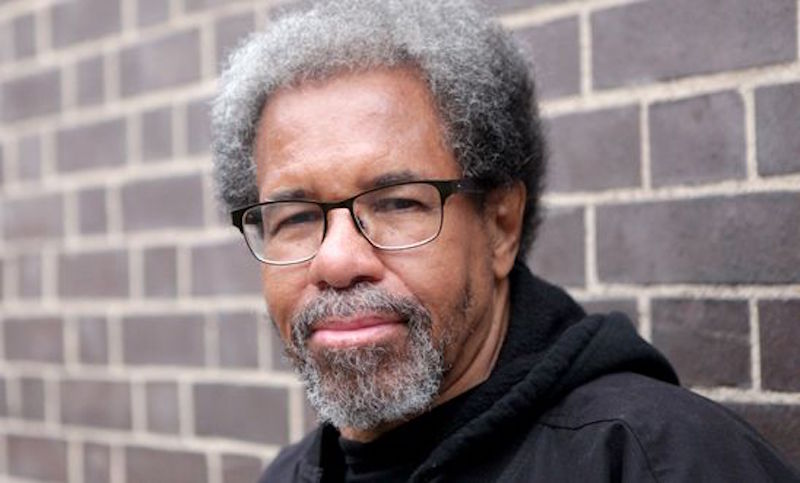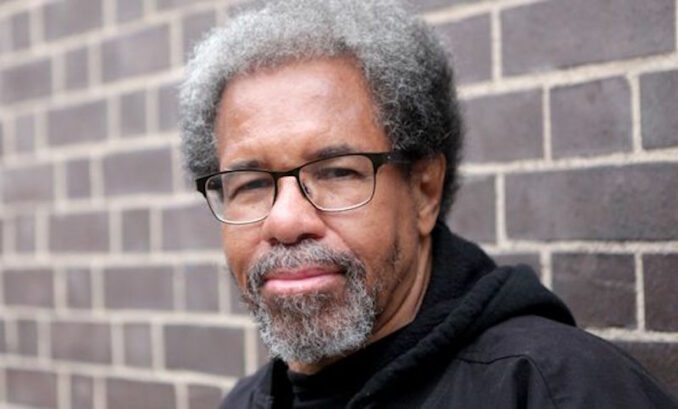

Albert Woodfox, 2016.


Albert Woodfox, 2016.
Workers World was saddened to learn of the death of Albert Woodfox Aug. 4 from COVID-19-related complications. Woodfox was released from prison in February 2016, after spending nearly 45 years of incarceration, most in solitary confinement. This exchange between Woodfox, of the Angola Three, and political prisoner Mumia Abu-Jamal was recorded by Prison Radio. It aired April 23, 2021, as part of an evening of solidarity with Abu-Jamal.
Mumia Abu-Jamal: You and the other Angola Three did an ungodly bid in the hole. How did the state justify locking you cats up for so long?
Albert Woodfox: Given the unchecked and unchallenged power of the prison system in Louisiana, their justification was the fact that myself, Herman and Robert were fighting for humanity — the fact that we were fighting to maintain our big identity, pride, self-respect and a sense of self-worth. They felt it was a threat to what they considered to be the only function of a prison. That was the “justification” here. The warden made a statement in a deposition that I was the most dangerous man in America. And since I’ve been out, I would like to think that my attitude has proven him to be right.
MAJ: How did y’all endure 40 years in the hole?
AW: That’s a more difficult question to ask. I guess having political consciousness was inspired by being members of the Black Panther Party. They say knowledge is power. We had a sense of what solitary confinement was designed for, so over the decades I would guess strength, determination, values or principles. We stayed active, and we looked to society for inspiration — the men and women, in some cases children, fighting inside to be heard, to change conditions, rather than turn inward and allow prison culture to set examples of how we should live our lives.
MAJ: What gave y’all hope?
AW: I had a wonderful family, wonderful comrades who made up the International Coalition to Free the Angola Three, a wonderful legal team. But more than anything, what gave me hope was the guys I lived around. The social struggle that was being waged, sacrifices that were being made, the indomitable spirit that refused to be broken.
Now those are some of the things that inspire me. One thing in particular was the development of Black Lives Matter, which I think is a tremendous movement. And I was so proud to see all the young men and women involved in that movement come forth. As a matter of fact, before the pandemic when Robert and I were traveling together and speaking, we always asked the host to arrange it so that we could meet with some of the young leaders in the movement.
Those are the things that gave me hope, you know, a love of humanity, the indomitable spirit of the people and the continual struggle that was going on in society. Mumia, my brother, given the preponderance of evidence exonerating you and lack of evidence against you, how does it feel to still be in prison?
MAJ: Brother Albert, and in the spirit of all the Angola Three, I salute you. You know, I think of early days, even before the trial began. There was a pretrial hearing. I had read a law book showing cases from the U.S. Supreme Court. So it was based on the Constitution, right? I went to the law library, read those actual cases and then drew up motions that I made in court. Judge [Albert] Sabo promptly denied the motions. I couldn’t believe it.
But it made me understand that the legal system most people meet, when they first go into court, wasn’t bound by a Constitution or Supreme Court rulings. They do whatever they want to do, because it really ain’t about the law. It’s about power.
The same judge, Sabo, would later say in open court, 15 years later in my appeal case, “Justice is just an emotional feeling.”
To quote Malcolm X, “Don’t be shocked when I say I was in prison. Long as you’re south of the Canadian border, you’re still in prison.” So, all power to the people.
AW: My brother, what is your most painful personal loss?
MAJ: My mother and daughter, Edith and Samia. I had dreams of walking with both of them in freedom. And, of course, other family members, brothers, sisters, cousins, brothers-in-law. They live in our memory and in our hearts.
AW: Again, my brother, what is your number one priority when freedom finally comes?
MAJ: The same, as it’s always better to serve the people. To work on their behalf, to work for a world where true Black liberation is a reality, not just words. As for us to say freedom is a must. Thank you, Brother Woodfox.
Mumia Abu-Jamal
The epic struggle of the Palestinian people against the full weight of U.S. imperialism and…
The following report comes from the Bronx Anti-War Coalition organizers on a protest held in…
In the Canadian federal elections held on April 28, the Liberals won with 169 seats…
The following is Part 2 of a talk given by the author to a meeting…
Boston Students, professors and workers are confronting the Trump administration’s fascist crackdown at universities across…
Philadelphia Within days of Swarthmore students reviving a pro-Palestinian encampment on April 30, police arrested…